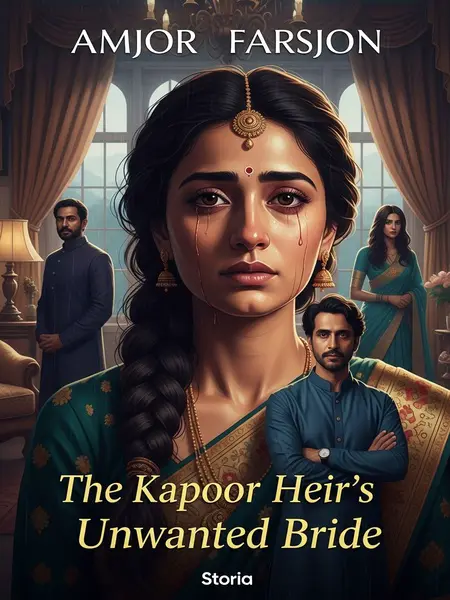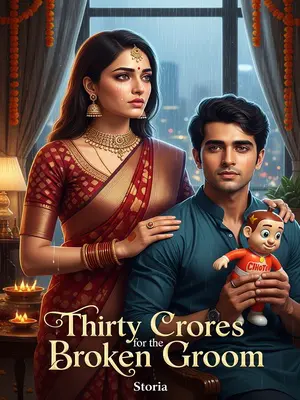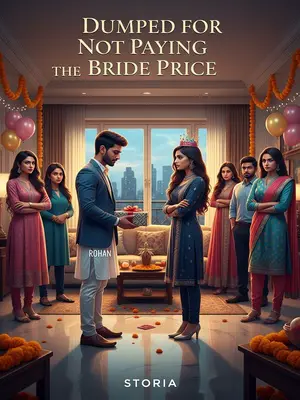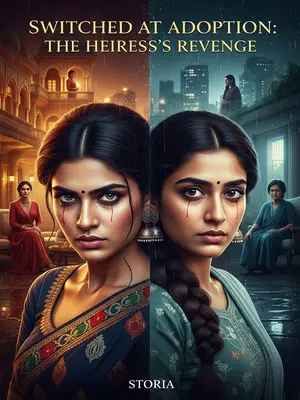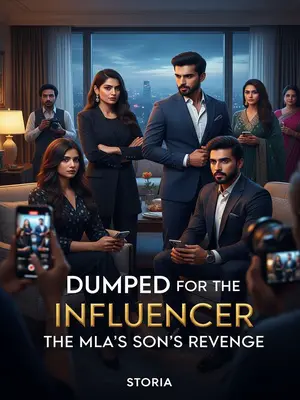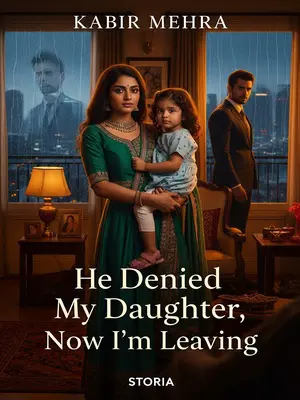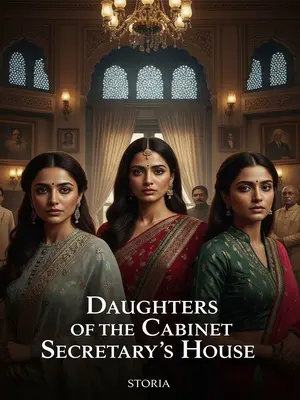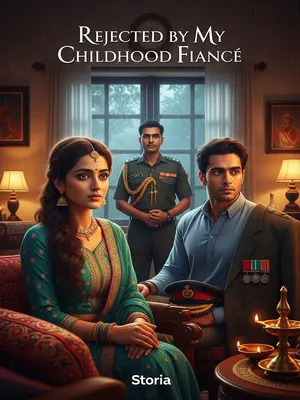Chapter 2: A Daughter in Name Only
Before Arjun, my life was never a fairy tale.
My childhood was edged with reality—a mother’s tired hands, dreams stitched into old frocks. When the power went, she’d light a lamp and spin tales of fate and stars, her voice trembling but fierce. I learned early that the world cared about surnames and your father’s pay slip.
My mother was obsessed with looks and fell for my father’s charm.
In the basti, her friends always said she was the prettiest, eyes like fresh betel leaves, hair shining even in the flicker of a tube light. She dreamed of escape, and my father’s smile looked like a ticket out.
She loved blindly, trusted him without a second thought.
Those days, love was a gamble—and Ma lost. She once told me, while chopping onions for bhel, “Ritu, hum auratein kabhi kabhi itni bhooli hoti hain. Gulab dekhte hain, kaante bhool jaate hain.”
Then I was born.
I was her only child, the centre of her world. She’d smooth my hair before school, tying ribbons so tight, as if that could protect me. Even when she struggled to pay my fees, she never let me see her cry.
After I was born, my mother learned my father was from a wealthy family—one phone call from him, and we’d never worry about rent or food again.
The day she found out, it was raining. She told a neighbour, “These rich folks, palaces behind gates, but hearts—hai, kaun jaane?” She thought she’d found security, but it was just a fata morgana.
But the catch was, my father was a ghar jamai in that wealthy family.
He lived under his sasur’s thumb, neighbours taunting him for trading pride for comfort. My mother’s pride was bruised each time whispers floated: “Dekho, ghar jamai hai, biwi ke ghar par baithe rehta hai. Kya dega tumhari beti ko?”
People called him a ladies’ man, relying on his wife’s family to climb up.
Ma used to scoff, “High society? Woh toh humko gate ke andar bhi na jaane dein.” All her dreams—jewellery, ease—vanished in a puff of betrayal.
And my mother was just his mistress.
Her voice broke when she said, “Kabhi bhi us aadmi pe bharosa mat karna jo tumhe chhupakar rakhe, Ritu.” She’d hold my face in her warm, rough palms and promise me better.
His legal wife caught them—no drama, just cold words and an envelope forced into Ma’s hand.
The colony aunty saw it all, and by chai time, everyone knew. Our reputation shrank like a cotton kurta in the wash.
Don’t be fooled—my father roared at my mother, but in front of his wife, he was meek as a schoolboy.
That evening, Ma came home with swollen eyes, voice bitter as karela. “Ritu, kuch mard sirf shor machate hain. Bahar duniya ke liye kuch bhi nahi hai.”
My father stopped seeing us.
He wouldn’t even acknowledge me.
Ma raised me alone; every day was a battle.
She’d pedal that rickety cycle, her saree pallu tucked tight, sweat shining on her forehead as she bargained with the sabziwala. She sold chaat by the road, ran from municipal officers, once even losing a slipper in the chaos.
She’d joke about that slipper, but I heard her cry at night—feet blistered, spirit battered. Yet she’d still tell me bedtime stories, pinching my cheek, “Dekho, Ritu, hum kabhi tootenge nahi.”
Eventually, Ma decided enough was enough.
She wanted to find a way out for me.
I don’t know how she did it, but Ma got a DNA test proving I was my father’s daughter.
She marched to his bungalow, voice ringing over the garden for all to hear, not caring about the stares. “Aaj teri Ma ne tere liye haq ki ladai ki,” she told me later, hands trembling as she wiped my face with her pallu.
The rich family, scared of scandal, agreed.
From that day, Ma and I were separated.
The last day at the Sharma family gate, Ma smiled through tears. “Ritu, ab kabhi bhookha nahi rahogi.”
But Ma had misjudged things.
My father saw me as a stain, Mrs. Sharma barely tolerated me.
The servants could read the air, so they didn’t treat me well either.
My half-sisters found new ways to torment me every day.
But Ma never knew.
That day at the Sharma gate was the last I ever saw her.
She got cancer—late stage. There was no money for hospitals.
After sending me away, she jumped into the Yamuna.
I grew up in the Sharma family as an outsider, always careful.
Each morning, I’d help in the kitchen, folding rotis or peeling onions, listening for angry voices. I learned when to smile, when to slip away, how to study hard and stay invisible. If my saree’s border was frayed, I’d tuck it in so nobody saw.
At fifteen, I met a boy in the Sharma house.
He’d been scratched by a bougainvillea thorn, blood on his arm.
He didn’t seem to notice, headphones on, lost in music in the garden.
I thought for a second, brought Dettol and a band-aid.
He didn’t say thanks, but I saw his shoulders drop, just a little. The next day, a tiny nod when we crossed paths.
Later I learned his name: Arjun Kapoor.
His grandfather brought him to visit the Sharma family.
For some reason, Dadaji Kapoor liked me and wanted me as his bahu.
The Kapoors were a big name, so my father agreed at once.
When my sisters heard, they snickered.
“Tu samajhti hai badi aadmi ban jayegi? Agar achha rishta hota toh tere paas aata?”
“Arjun toh bachpan se autistic hai, mood swings—bilkul sahi nahi hai.”
But after the engagement, Mrs. Sharma was at least civil to me.
Life got a little easier—no more daily taunts.
I’d remember that first meeting—the skinny boy, lost in music, headphones hiding him from the world.
He didn’t know, but just by existing, he’d already helped me.
I was grateful.
I started learning about his condition, figuring out how to connect with him.
At twenty, as per both families’ plan, I married Arjun Kapoor.
